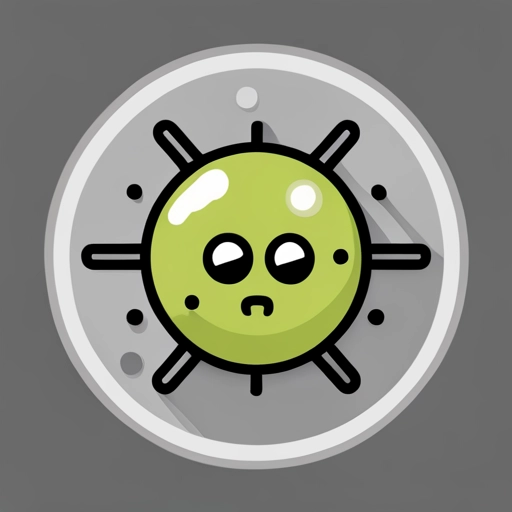Facebook / Meta Hacked Accounts
“You’ve been hacked!!”
How many times have you gotten that message from your Facebook friends, or possibly sent it to a friend after getting a new “Friend Request” or a weird message from them? This article will help you identify what sort of scam you might be dealing with, how to fix it and how to prevent it from happening!
Account Cloning / Spoofing
 You have a new friend request from someone you’re already friends with. Did they accidentally get unfriended? Did they create a new account? Or is someone trying to pull the wool over your eyes?
You have a new friend request from someone you’re already friends with. Did they accidentally get unfriended? Did they create a new account? Or is someone trying to pull the wool over your eyes?
What is it?
There is a well known scam called Account Cloning or “spoofing”. This is NOT a “hack”. If someone has cloned your account, changing your password is a waste of time. It won’t fix the problem, or prevent it.
Why do they do it?
People usually do this to harvest data from the person’s friends, to send unsolicited advertising or even to send malicious links to unsuspecting folks who accept the friend request of the cloned account. Additionally, every person who accepts the new friend request gives the scammer access to THEIR friend’s information, as well as opening new opportunities for cloning.
How to fix it?
Do not accept friend requests from people who are already on your friend’s list unless you have already verified it’s a legitimate request. If you suspect that you have found a clone or spoof account, you can REPORT it to Facebook. There is an option to select whether the fake account is a friend of yours (the friend has to already be on your friend’s list) or whether they are cloning your own account. If you report a copy of your friend’s account, Facebook will usually reach out to your friend first to make sure it isn’t legitimate. If you’re reporting a copy of your own account, Facebook usually shuts the fake account down pretty quickly.
How to prevent it?
The best way to prevent account cloning is to set all of your personal information, such as your friend’s list, your location and work details to “friends only” or better yet, “private”. If scammers can’t see your information they can’t steal it. Also, be very careful about the friend request you accept. Be aware that you’re potentially giving them access to view your protected information and go after your friends!
Malicious Bots / Apps
 Your friends are telling you that they are getting weird messages from you in messenger that you definitely didn’t send. You might see posts on your timeline that you did not post.
Your friends are telling you that they are getting weird messages from you in messenger that you definitely didn’t send. You might see posts on your timeline that you did not post.
What is it?
This is usually caused by accidentally giving a malicious app, or “bot”, access to your Facebook account. This might happen if you click a link from a malicious app or bot that was sent to you in Facebook messenger. Sometimes you will not even get a “permission request” when this happens. It may just look like you clicked the link and nothing happened, or you may be taken to a strange page that asks you for information. As with Cloning or Spoofing, changing your Facebook account password won’t help with this situation.
Why do they do it?
As with most types of scams, this is usually an attempt to “phish” or trick people into giving out private information, which will be used to harm them. Sometimes it’s more annoying than harmful and will just send out unsolicited advertising. It’s never a good thing though.
How to fix it?
The best steps to take in this situation are to go to your Apps section in your Facebook account and REMOVE access to anything you do not absolutely trust. You can also go to the Security section of your account and choose to LOG OUT any devices you do not recognize. If you DO see devices logged in that you do not recognize, usually with strange locations, you can choose to log them all out of your account. In that situation, it’s a good idea to go ahead and change your password too.
How to prevent it?
Do not click on suspicious links, or open unexpected email attachments. Also, make sure you have good protection on your computer and your internet browsers. The protection may not help in some cases, because users are normally able to bypass the protection, but it’s another layer of protection and a good step to take in general. If there are other people in your household who use your device, be sure that you actually log out of Facebook when you are not actively using it.
Real Hacking
You try to use your facebook account and you realize that you’re locked out of it. Uh-oh. You may the victim of actual hacking.
What is it?
Although relatively rare, this can be caused by clicking on a malicious link. It can be caused by a successful phishing attempt – where you’ve been tricked into giving a hacker your facebook login information. It can be caused by “keyloggers” or other malicious threats that have invaded your device and stolen your information. It can be caused by someone using your device and changing your information if you forgot to log out of your Facebook account. The methods hackers use to hijack people’s accounts is constantly changing, so it’s important to stay vigilant and don’t play along if anything seems “off”.
Why do they do it?
 Many reasons. If it’s someone you know who gained access to your account and changed your information without your permission, it’s usually done for spite. When actual hackers take over a Facebook account, they often do it to try and blackmail the owner into paying them to regain access. In the case of a celebrity or business, it could be blackmail, or it could be trying to ruin the celebrity or business, or just embarrass them. It’s become increasingly common for hackers to take over accounts and just use them to send out spam.
Many reasons. If it’s someone you know who gained access to your account and changed your information without your permission, it’s usually done for spite. When actual hackers take over a Facebook account, they often do it to try and blackmail the owner into paying them to regain access. In the case of a celebrity or business, it could be blackmail, or it could be trying to ruin the celebrity or business, or just embarrass them. It’s become increasingly common for hackers to take over accounts and just use them to send out spam.
How to fix it?
If you are unable to log into your account, your FIRST step should be to just try resetting your account password. You may have simply forgotten your password, or typed it in incorrectly. Even if you have been hacked, it’s often possible to regain control of the account by resetting the password. This should be a fairly simple process.
If you have actually been hacked, you can usually get help from Facebook Support to regain access to your hacked account. Usually. It can be difficult to reach Facebook Support, it can take a long time for them to respond if you DO manage to reach them and they can ask you to jump through hoops which you’re unable to jump through – such as access to a security phone number you no longer have. There are also more basic account recovery steps which can get your account back more quickly, if you’re proactive in protecting your account.
How to prevent it?
Again, it’s always important to have GOOD protection on your devices. We sell a comprehensive protection and monitoring package that includes real-time, personal assistance if you see things that are concerning. This will prevent most malicious software from stealing your information. Be very careful about what you click on. If you’re not sure whether a link, or attachment is legit or not, reach out to the person who sent it to you. Ask them questions that only they would know the answer to, such as where you met them. Set up 2FA (Two-Factor Security) on your social media and email accounts. You can also set up a special code generator for an extra layer of protection. Additionally, once again, make sure you log out of your accounts when you’re not using them, if there are other people who use your devices.
Finally…
Computer Chick offers remote assistance to help you do all of the things mentioned in this article. If you need help, schedule an appointment and we will happily assist you!
Stay safe out there!
– Computer Chick



